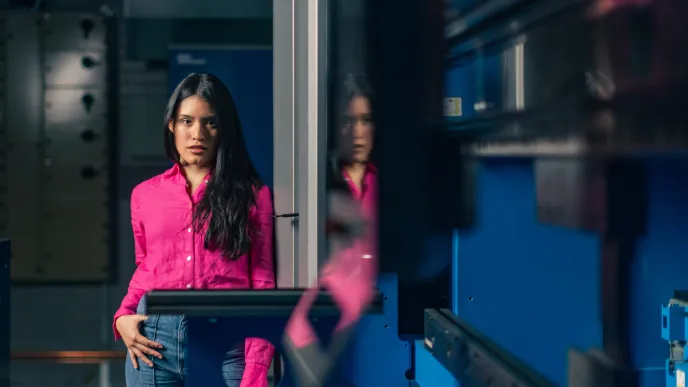The newsletter is your guide to what's happening on LUT campuses and the student community as well as to bachelor's and master's programmes updates and admission instructions. Newsletters will be delivered to your email once a month.
Climate change, biodiversity loss, and other ecological crises pose profound challenges to social, political, and economic relations – both locally and globally.
Critical systems such as energy, water, food, transport, and digital infrastructures are molded by social practices, corporate strategies and innovation, and political decision-making. As these systems depend on our fragile planet, they must become more sustainable, just, and equitable. Addressing this challenge is at the heart of the programme.
Interdisciplinary perspectives
This programme combines social science perspectives on technology and the environment with a focus on governance, social practices, sustainability transformation, and the energy transition. You will learn to analyse how technology, science, and society influence each other, and how infrastructures and critical systems can be transformed to meet sustainability goals.
The programme emphasises
- the social analysis of sustainability transitions and sociotechnical systems;
- governance, politics, and policy in domains such as energy, food, water, and digital infrastructures;
- the roles of consumption, production, and public participation in advancing change;
- interdisciplinary approaches to knowledge, cooperation, and innovation.
Admissions guide 2026
What will you learn in the programme?
By graduation, you will have
- the ability to critically analyse the social shaping of science, technology, and infrastructures;
- interdisciplinary knowledge of the sustainability transformation, innovation, and governance;
- skills to work with companies, policymakers, NGOs, and citizens to address sociotechnical challenges;
- a strong academic foundation for understanding and managing just sustainability transformations.
Through real-life cases and collaboration with companies and other stakeholders, you will also build practical skills and professional networks.
Degree structure and studies
The Master's Programme in Technology, Environment and Societal Change is a two-year programme. It leads to the degree of Master of Social Sciences, M.Soc.Sc., which is 120 ECTS credits.
The programme includes core, advanced specialisation, language and multidisciplinary studies on critical systems of society as well as a master’s thesis. Read more in this academic year’s curriculum.
Career prospects
As a graduate, you will be prepared for a wide variety of expert and leadership roles in sustainability, policy, and technology governance.
Possible careers in corporations, NGOs, and academia might be a researcher (academic or applied), corporate sustainability manager, sustainability consultant, environmental or sustainability policy specialist, public relations manager with a focus on sustainability, policy or environmental officer in government or NGOs.
You will also have a firm basis for doctoral studies in the field of social sciences.
Contact Admissions Services
The LUT Admissions Services are here to assist you in all matters related to applying to international bachelor's and master's programmes.
For questions about admission criteria or entry requirements, please reach out to us by email: admission@lut.fi.
Chat with our students
Do you want to know more about studying at LUT, student life, or housing on LUT's campuses?
For questions about admission to bachelor's or master's degree studies, please email admission@lut.fi.




